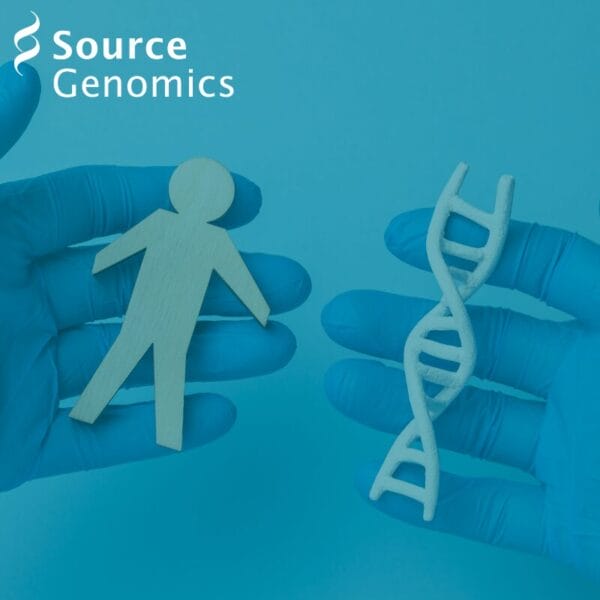What advantages does whole exome sequencing bring to precision medicine?
Precision medicine marks a significant stride forward in healthcare, where a personalised treatment approach is used based on the unique genetic profile of the individual. This approach aims to enhance therapeutic efficacy and minimise adverse effects, thereby challenging the traditional ‘one-size-fits-all’ healthcare model.
Central to the advancement of precision medicine is genomic sequencing; the analysis of an individual patients’ genes to identify unique disease biomarkers, as well as to facilitate a personalised downstream approach. In particular, whole exome sequencing (WES) plays an integral role, sequencing all the protein-coding genes in a genome, collectively referred to as the exome. Although the exome constitutes only about 1-2% of the human genome, it contains over 85% of known disease-related variants, making it a rich source of clinically relevant information.
Whole exome sequencing offers several advantages in the context of precision medicine. It enables the identification of disease-causing mutations, facilitates the discovery of new therapeutic targets, and provides the basis for personalised treatment plans. Furthermore, it can aid in the development of more effective drugs with fewer side effects. In the following sections, we will explore in detail the advantages of whole exome sequencing and its transformative potential in the realm of precision medicine.
Identification of genetic mutations
Whole exome sequencing is a robust technique that can identify genetic mutations associated with specific diseases or conditions. Specifically, WES uniquely targets protein-coding regions of the genome, where alterations can profoundly affect protein function, stability, and interactions with other molecules. Critically, particularly when combined with other –omic technologies such as proteomic and epigenomic data, this information is crucial for understanding the basis of disease of a unique genetic profile through gene expression patterns, alternative splicing and isoform expression, and the construction of gene regulatory networks.
Aligning treatments with genetic mutations
Precision medicine involves the alignment of treatments with an individual’s genetic mutations. Whole exome sequencing aids this process by identifying genetic mutations that can be targeted by specific treatments, thereby enabling more precise and effective treatment strategies.
One example is the discovery of a novel frameshift mutation for vitamin D-dependent rickets type 2 in a domestic longhair kitten. Whole-exome sequencing enabled the identification of the underlying DNA variant, leading to the discovery of a cytosine deletion in the vitamin D receptor (VDR), predicted to disrupt up to 90% of the receptor. This discovery enabled the curation of tailored treatments to normalise the serum calcium concentration and restore normal growth – highlighting the prominence of WES in not on human disease but also veterinary medicine.
Evaluating treatment response
Whole exome sequencing also plays a critical role in clinical research for evaluating an individual’s response to treatment. By monitoring changes in an individual’s genetic profile over time, clinicians can assess the efficacy of a particular treatment, highlighting whether the desired therapeutic outcomes are being achieved, or if modifications are required to the treatment plan.
In summary
In summary, whole exome sequencing plays a pivotal role in precision therapeutics by identifying genetic mutations associated with specific diseases or conditions. Furthermore, by integrating data from multiple sequencing technologies with WES data, these novel tools produce the massive amounts of data needed to researchers are able to fully understand medical complexities across the full breadth of multi-omics research.
Looking for commercial sequencing solutions?
At Source Genomics, we are committed to advancing the field of genomics through our large portfolio of sequencing services. Learn more about our whole exome sequencing services here.
References and further information
- Adashek, J.J., Kato, S., Parulkar, R., Szeto, C., Reddy, S.K., & Kurzrock, R. (2019). RNAseq in addition to next generation sequencing in advanced genitourinary cancers reveals transcriptomic silencing of DNA mutations: Implications for resistance to targeted therapeutics. Journal of Clinical Oncology.
- Templeton AR, Jeffery PL, Thomas PB, Perera MPJ, Ng G, Calabrese AR, Nicholls C, Mackenzie NJ, Wood J, Bray LJ, Vela I, Thompson EW, Williams ED. Patient-Derived Explants as a Precision Medicine Patient-Proximal Testing Platform Informing Cancer Management. Front Oncol. 2021 Dec 20;11:767697. doi: 10.3389/fonc.2021.767697. PMID: 34988013; PMCID: PMC8721047.
- Seleman M, Hoyos-Bachiloglu R, Geha RS, Chou J. Uses of Next-Generation Sequencing Technologies for the Diagnosis of Primary Immunodeficiencies. Front Immunol. 2017 Jul 24;8:847. doi: 10.3389/fimmu.2017.00847. PMID: 28791010; PMCID: PMC5522848.
- Habacher G, Malik R, Lait PJ, Coghill LM, Middleton RP, Warren WC, Lyons LA. Feline precision medicine using whole-exome sequencing identifies a novel frameshift mutation for vitamin D-dependent rickets type 2. J Feline Med Surg. 2023 Jun;25(6):1098612X231165630. doi: 10.1177/1098612X231165630. PMID: 37387221.
Contact us today and one of our skilled account managers will be in touch with a free consultation including further information and pricing details.
Share this article

